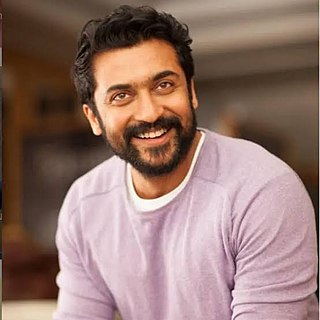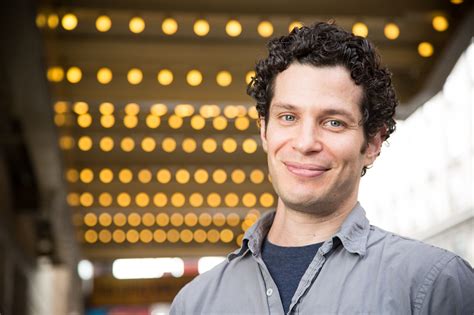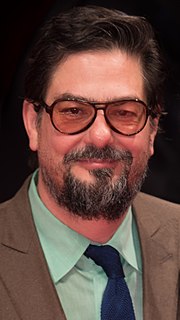A Quote by Tanushree Dutta
When I was young, I was like, 'I want to want to work with this director and that director'. I've stopped doing that. You put yourself in a place where you get disappointed.
Related Quotes
With a director it's all about the work; I'd work with a great director over - you know, I'm not the kind of actor who that doesn't go, 'I want to play this role.' It's more like, 'I want to work with this director,' regardless of what the role is because if it's a good director, you'll probably find a good role because it's a decent film. But a mediocre director will always make a mediocre movie.
I like to adapt to a director's way of working. I love doing that. Each director is so different, and you have to adapt to this new way of doing something. That's what's amazing to me. That's why I love directors. I don't want to director to have to work around me. I think it's more fun for me to come in on their thing.
The producer can put something together, package it, oversee it, give input. I'm the kind of producer that likes to take a back seat and let the director run with it. If he needs me, I'm there for him. As a director, I like to have the producer there with me. As a producer, I don't want to be there because I happen to be a director first and foremost, I don't want to "that guy."
I don't follow anything that's said about him much, but the Uwe Boll that I know is just a really cool guy. He's just a really quiet, kind and passionate filmmaker who really believes in what he's doing. Like any director that an actor wants to work with, you want a director who's passionate and believes in the work that he's doing.
As an actor, it's always important to understand what the director is after. That, to me, is my job. When I'm acting, I like to ask a lot of questions and understand exactly why the director is doing what they're doing, so that I can provide him or her with the ingredients that they need to get the scene that they want. It's not to challenge them, in any way. It's just so that I can do my job best.
One of the challenges of being a director is often you don't get to work with your peers. You know, writers can write together, and as a director you get to work with so many wonderful actors and writers and designers. But it's pretty rare that you get a chance to partner in that way with another director.
There is still so much that I want to see and do, but for me, it's the pure satisfaction of doing what you really want. I always had a problem doing things that I didn't want to do. I don't have a problem when my director says: "Don't do it like this; I want it like this." But generally in life, I like to do what I want, and for me the best way is through acting and making films.
Independent means one thing to me: It means that regardless of the source of financing, the director's voice is extremely present. It's such a pretentious term, but it's auteurist cinema. Director-driven, personal, auteurist... Whatever word you want. It's where you feel the director, not a machine, at work. It doesn't matter where the money comes from. It matters how much freedom the director has to work with his or her team. That's how I personally define independent movies.
I always try to stick to the script because I want to respect the writers, and I want to respect the director. But if the director and my fellow actors are okay with me playing with it a little bit, then I definitely want to play with it. I definitely want to do that, because I tend to... when I put things in my own words, it comes out way better. It flows naturally, it just feels better. I can put some weight into the words. Even in comedy, it just comes better.
You want to give the director what they want, and you don't always know exactly how it goes, so you want to try it a few different ways. You have to be flexible; you have to be in collaboration with the director; you have to be versatile. But you also want to be protective of what you really believe in and how you feel it should be portrayed.
Film’s thought of as a director’s medium because the director creates the end product that appears on the screen. It’s that stupid auteur theory again, that the director is the author of the film. But what does the director shoot-the telephone book? Writers became much more important when sound came in, but they’ve had to put up a valiant fight to get the credit they deserve.










































